Addiction is not only a chronic disease but also a family disease — because it impacts family relationships. That’s why a family therapy program is usually part of addiction treatment plans. Addiction and family-related problems can be intertwined. For example, during individual counseling or therapy sessions, someone participating in an addiction treatment program may figure out that the reason they developed an addiction was to cope with family-related problems.
Family therapy allows participants of addiction therapy programs to deal with those problems in the presence and with the help of members of their families. It also provides family members opportunities to share how a participant’s addiction has affected their relationships with each other. During family therapy in the recovery process, relatives can also learn if they’ve been helpful or unknowingly harmful during their loved one’s struggle with addiction.
Searching for a family therapy program in Athens, GA? Contact Athens Addiction Recovery Center today by calling 844.959.4998 or reaching out to our team online.
What Is the Connection Between Addiction and Family-Related Problems?
Many people view battling a substance use disorder as a very personal experience. Because addiction may lead to devastating negative effects on a person’s life, relationships, and health, its impact on the other people involved is usually downplayed or outright ignored. In fact, the spouses, children, and parents of people who struggle with addiction may all be impacted by their loved one’s substance use disorder.
Peaceful and loving homes can be divided by the strain caused by addiction. Conflict becomes normal as family members fight to engage with a loved one who struggles with a substance use disorder. Trust among each other begins to erode. Relatives may become more guarded if their loved one with an addiction acts with aggression or hides their disorder. Communication becomes difficult and frustration becomes the new normal.
Family members may see their loved one endure side effects of addiction and become worried about their loved one’s health when under the influence of addictive substances. Some may not hear from a loved one for an extended period, only to discover that they’re struggling with addiction. A shock like this can cause a relative to endure severe trauma or develop unhealthy coping mechanisms.
How Can You Focus on Addiction Recovery While Making Amends with Family?
Making amends helps a person in recovery separate themselves from addiction. It helps them to understand that they’re not a bad person but a good person struggling with a bad disease. In this way, making amends not only repairs family relationships but also helps make the recovery path easier to traverse.
However, making amends isn’t just about apologizing. Amends should be actions taken that demonstrate a person’s new way of life in recovery. When you make amends, you acknowledge and align your values to your actions by admitting your wrongdoing and then continuing to live by your new principles.
In addiction recovery, actions and intentions are aligned. A great example of making amends while working on addiction recovery would be telling a relative how sorry you are that you stole from them and then actually giving back what you took. Words ring hollow when loved ones have repeatedly experienced you breaking your promises — so, to truly make amends, you have to offer more than words.
But, sometimes, those you’ve hurt are not able or willing to accept your amends. You should respect this distance and still move in a positive general direction by taking intentional steps to be of service to others. It’s essential to note that making amends is for the person you hurt and not to make yourself feel better. You partake in the process — but when it clears your conscience or undoes your feelings of guilt, that’s a bonus effect.
What Is a Family Therapy Program?
A family therapy program may make making amends easier for a client. A program like this involved a therapist and family members of a client. The goal is to improve family relationships and resolve family dysfunction and conflict. Expressing and processing feelings in family therapy sessions improves communication skills and develops healthier family dynamics. As mentioned earlier, addiction is a family disease. A family therapy program can be an integral part of recovery for both the client and their family.
Family therapy can focus on varying problems and themes as deemed appropriate by the family therapist. These can include the following:
- Communication problems
- Conflict resolution
- Domestic violence
- Financial problems
- Grief
- Infidelity
- LGBTQ challenges
- Marital strain
- Mental and physical health concerns
- Parenting
- Relationship dynamics
- Senior care
- Substance use disorder and addiction stigmas
- Trauma
Ready to Learn More About Athens Recovery’s Family Therapy Program?
If you’re looking for a family therapy program in Athens, GA, contact Athens Addiction Recovery Center today. Call 844.959.4998 or reach out to our team online.

